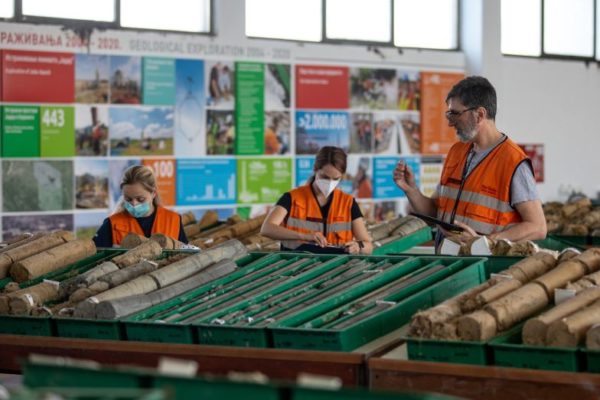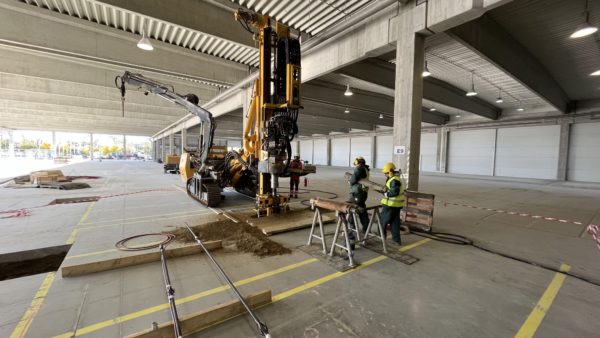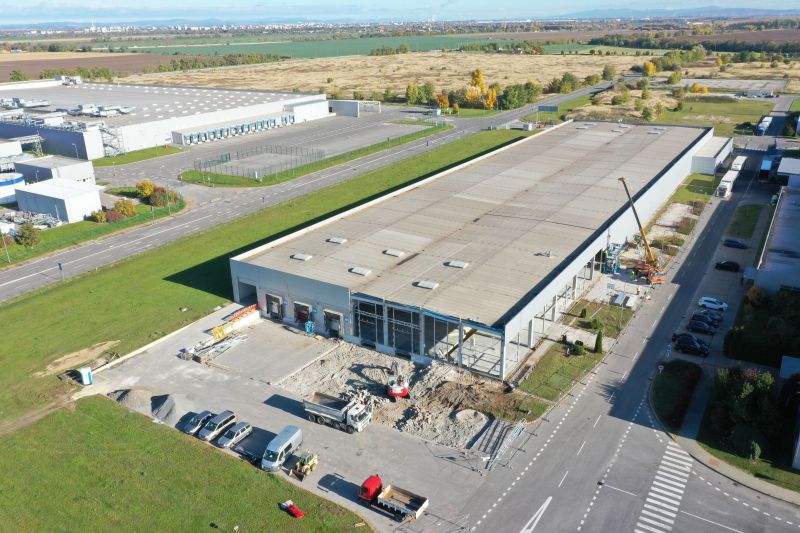ASX-listed miner Rio Tinto continues to strengthen its portfolio for the world’s transition to cleaner energy sources, announcing it will support the development of a “battery ecosystem” in Europe with an investment in electric vehicle (EV) battery producer Inobat Auto.
Rio Tinto said the investment will help Inobat complete the construction of an 88,000 square-metre battery research and development (R&D) centre and pilot plant being developed near its existing headquarters in Slovakia.
Inobat, which specialises in research, development, manufacture, and provision of electric batteries custom designed to be used in automotive, commercial vehicle, and aerospace sectors, is also planning to build several gigafactories, including one in Serbia, home to Rio Tinto’s $2.4 billion Jadar lithium-borates project, one of the largest greenfield lithium projects in development.
Managing director of Rio Tinto’s battery materials business, Marnie Finlayson, said the investment comes after the two companies signed a Memorandum of Understanding in May, outlining an intention to work together to progress the establishment of a “cradle-to-cradle” EV battery value chain.
“We are delighted to be able to deepen our partnership with InoBat through our investment and look forward to benefitting from a broader perspective of the battery materials sector, as well as insights into future battery chemistries and technologies,” she said.
“Our Jadar lithium project in Serbia is on the doorstep of the European electric vehicle market. Capable of producing enough lithium to make around 1 million electric vehicle batteries a year to the highest environmental standards, we believe Jadar will be a critical supplier of the European battery ecosystem.”
The world’s second-largest metals and mining corporation, Rio Tinto has predicted a 25-35% increase in lithium demand over the next decade as the sales of EVs continue their upward trajectory.

Image: Rio Tinto
Independent energy research firm Rystad Energy estimates that EVs, including plug-in hybrid electric vehicles (PHEV) and battery electric vehicles (BEV), will this year account for about one in every 10 new cars purchased, with a global market share of 10.3%, up from 5.3% in 2020.
This market share will be a new global record, marking the first time EV sales have accounted for a double-digit share of total vehicle sales, which are projected to be around 69 million in 2021. Rystad anticipates a high adoption scenario of 72% EV share globally by 2030 and close to 100% by 2040.
Rio Tinto said the scale and high-grade nature of the Jadar deposit provides the potential for a mine to supply lithium products into the EV value chain for decades and position the company as the largest source of lithium supply in Europe, one of the world’s largest growing EV markets.
“This collaboration with InoBat will enable an important exchange of knowledge and information on lithium processing, recycling and technologies for the next generation of batteries,” Finlayson said.
The miner said the Jadar project, which remains subject to receiving all relevant approvals, permits and licences, has the potential to produce approximately 55,000 tonnes of battery grade lithium carbonate per year. The project will also produce borates for use in solar panels and wind turbines.
If approved, construction of the Jadar mine is expected to take up to four years to construct with Rio Tinto anticipating first saleable production in 2026.

Image: Inobat
Inobat has said the battery R&D centre and pilot plant, which will be powered by green energy through grid electricity and solar panels, is set to be operational in early 2022.
Inobat chief executive officer Marian Bocek said the company is “thrilled” to partner with Rio Tinto and the cooperation between the mining group and the battery developer will cover the entire life cycle of lithium, from raw materials to recycling.
“Our mission has always been to provide solutions across the entire value chain,” he said. “With Rio Tinto, we are looking forward to further developing our manufacturing capacities and working closely on the downstream development of a battery ecosystem with common decarbonisation efforts at its core.”
Rio Tinto’s lithium pipeline also includes the Boron mine site in California which earlier this year commenced production of battery-grade lithium from waste rock.
The demonstration plant has a design capacity of 10 tonnes per year of battery grade lithium. It will be run throughout 2021 to optimise the process and inform Rio Tinto’s feasibility assessment for progressing to a production scale plant with an initial capacity of at least 5,000 tonnes per year, or enough to make batteries for approximately 70,000 EVs.
This content is protected by copyright and may not be reused. If you want to cooperate with us and would like to reuse some of our content, please contact: editors@pv-magazine.com.









18 comments
By submitting this form you agree to pv magazine using your data for the purposes of publishing your comment.
Your personal data will only be disclosed or otherwise transmitted to third parties for the purposes of spam filtering or if this is necessary for technical maintenance of the website. Any other transfer to third parties will not take place unless this is justified on the basis of applicable data protection regulations or if pv magazine is legally obliged to do so.
You may revoke this consent at any time with effect for the future, in which case your personal data will be deleted immediately. Otherwise, your data will be deleted if pv magazine has processed your request or the purpose of data storage is fulfilled.
Further information on data privacy can be found in our Data Protection Policy.